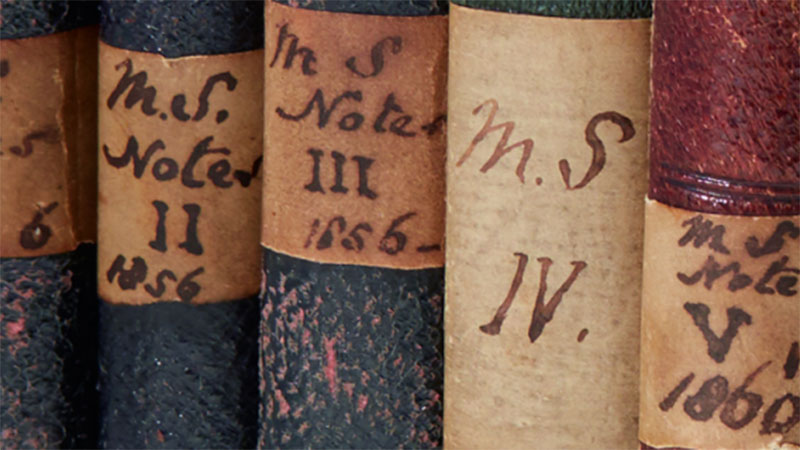Published:

Notebooks belonging to one of Charles Darwin's mentors are to be publicly accessible for the first time, following a successful fundraising campaign.
An impressive collection of work notebooks penned by the renowned geologist Charles Lyell have been secured through the National Heritage Memorial Fund, headed by the University of Edinburgh's Centre for Research Collections.
Supporters across the country, including Heriot-Watt University, have helped raise almost £1 million, to purchase the unique works and ensure they can be enjoyed by the public having previously been held in private ownership.
The retention of the notebooks will allow important new insights to be gained and their contents will be fascinating to both the public and the community of geoscientists alike.
Lyell's work has been attributed to helping Charles Darwin's framework of evolutionary theory, citing threats to biodiversity and climate change, as well as articulating the importance of 'deep' geological time at a time when most thought the age of the Earth was limited to a few thousand years.
Professor John Underhill, the Chair of Exploration Geoscience in the School of Energy, Geoscience, Infrastructure and Society, helped secure the £10,000 that Heriot-Watt pledged to ensure they remained in the UK.
He said: “The accessibility of the notebooks are hugely important as a historical record of Lyell and Darwin's journey of scientific discovery. The retention of the notebooks will allow important new insights to be gained and their contents will be fascinating to both the public and the community of geoscientists alike. Charles Lyell was truly ahead of his time, beginning a discourse that is as relevant today as it was two centuries ago.”
In all, 294 notebooks have been purchased, with the University of Edinburgh's Centre for Research Collections set to work with Heriot-Watt and the Lyell Centre, which was named to commemorate Sir Charles Lyell's link to the University. The aim is to create an “ambitious access project,” that will allow the material to be viewed in the coming months.